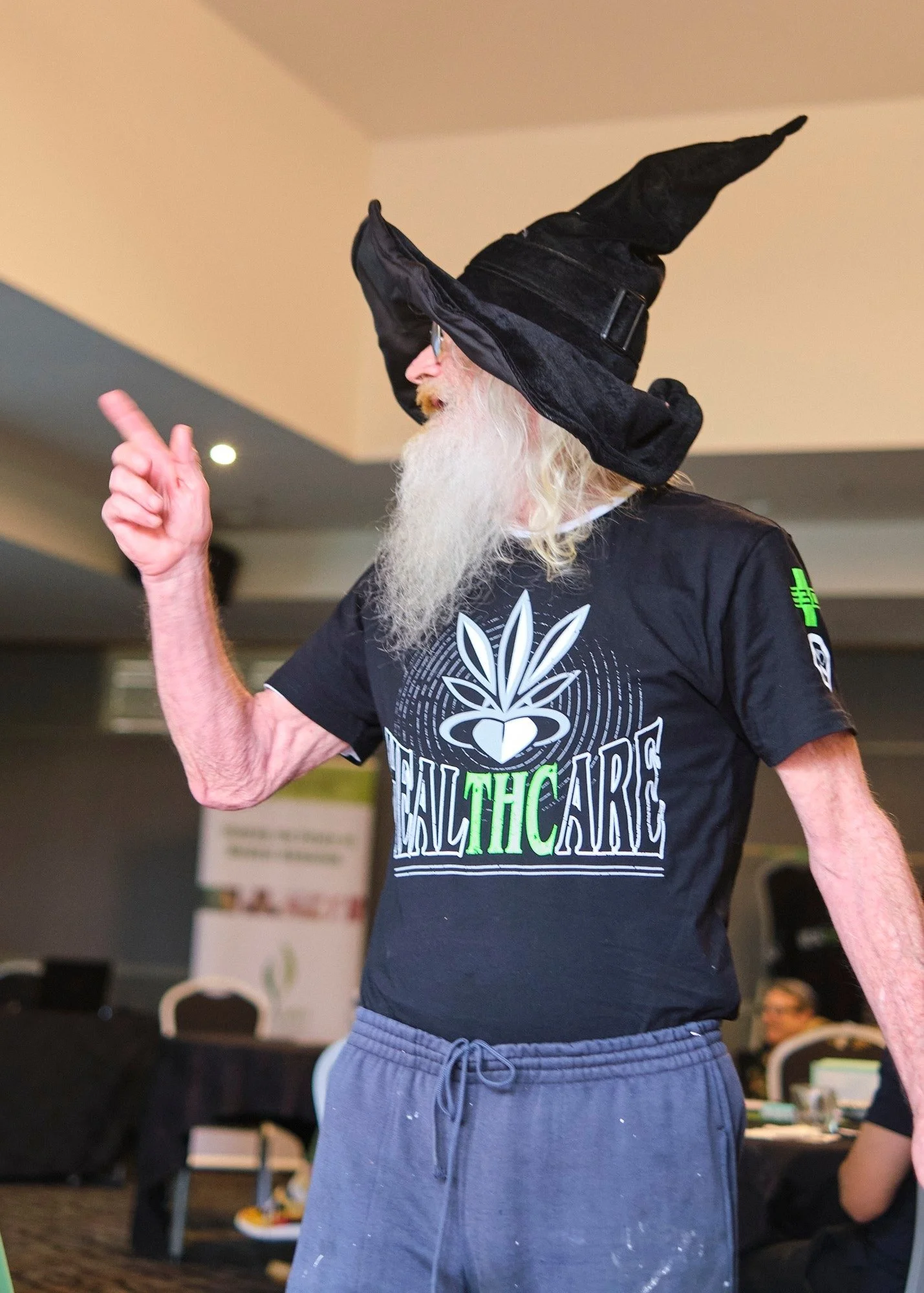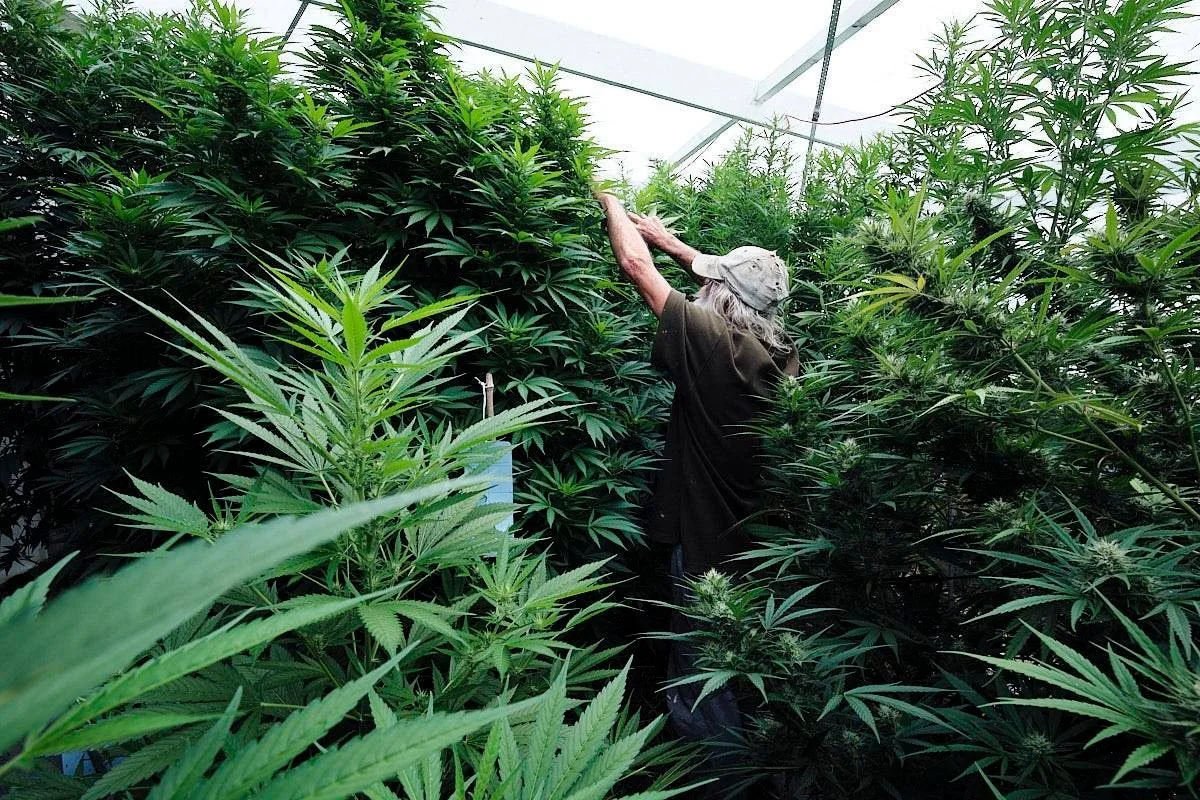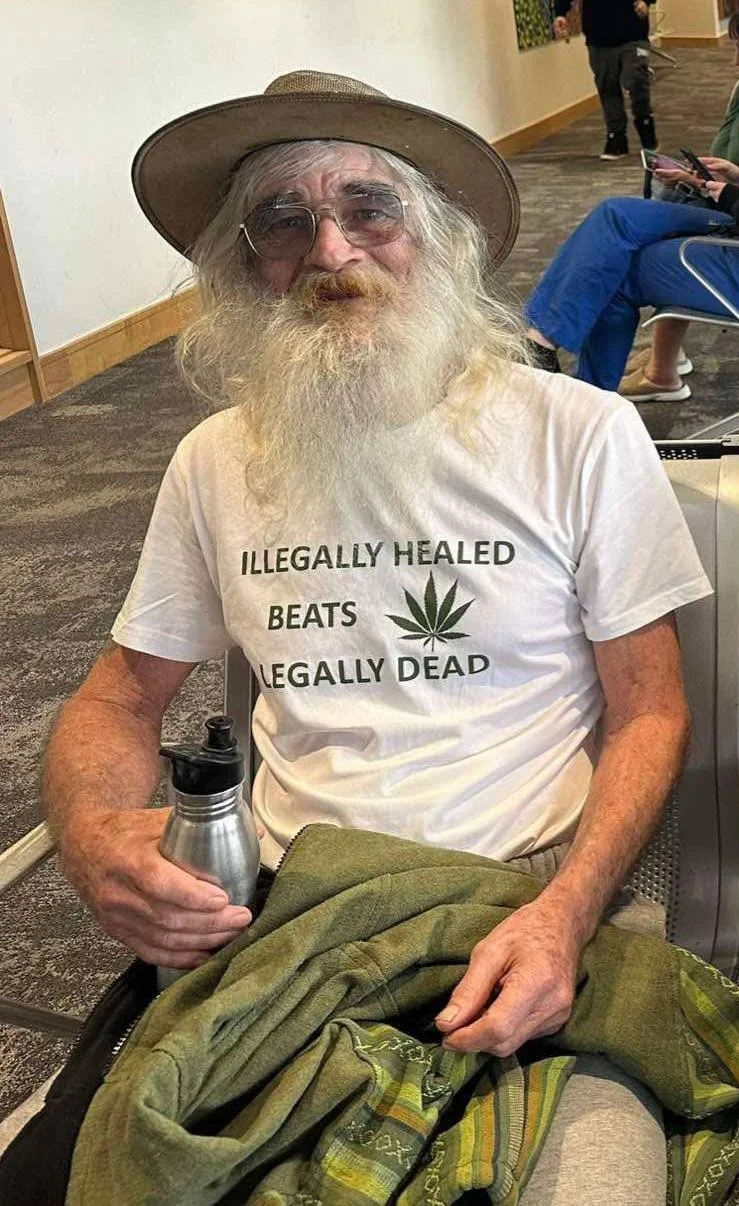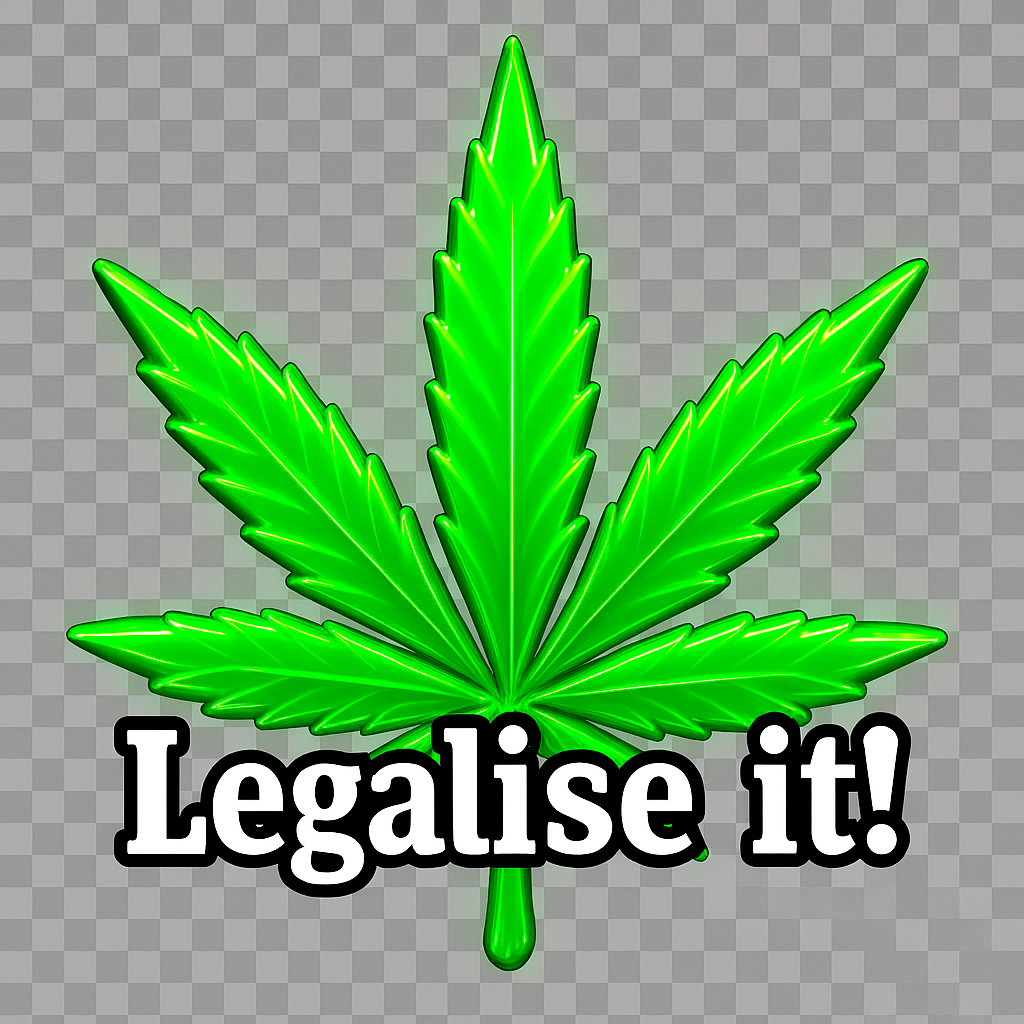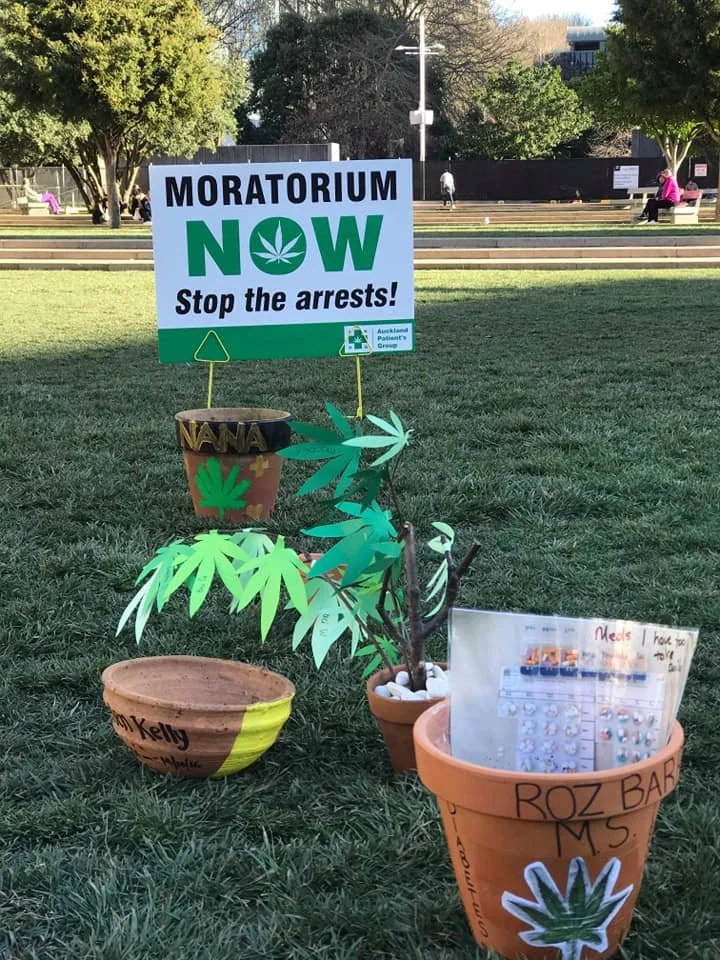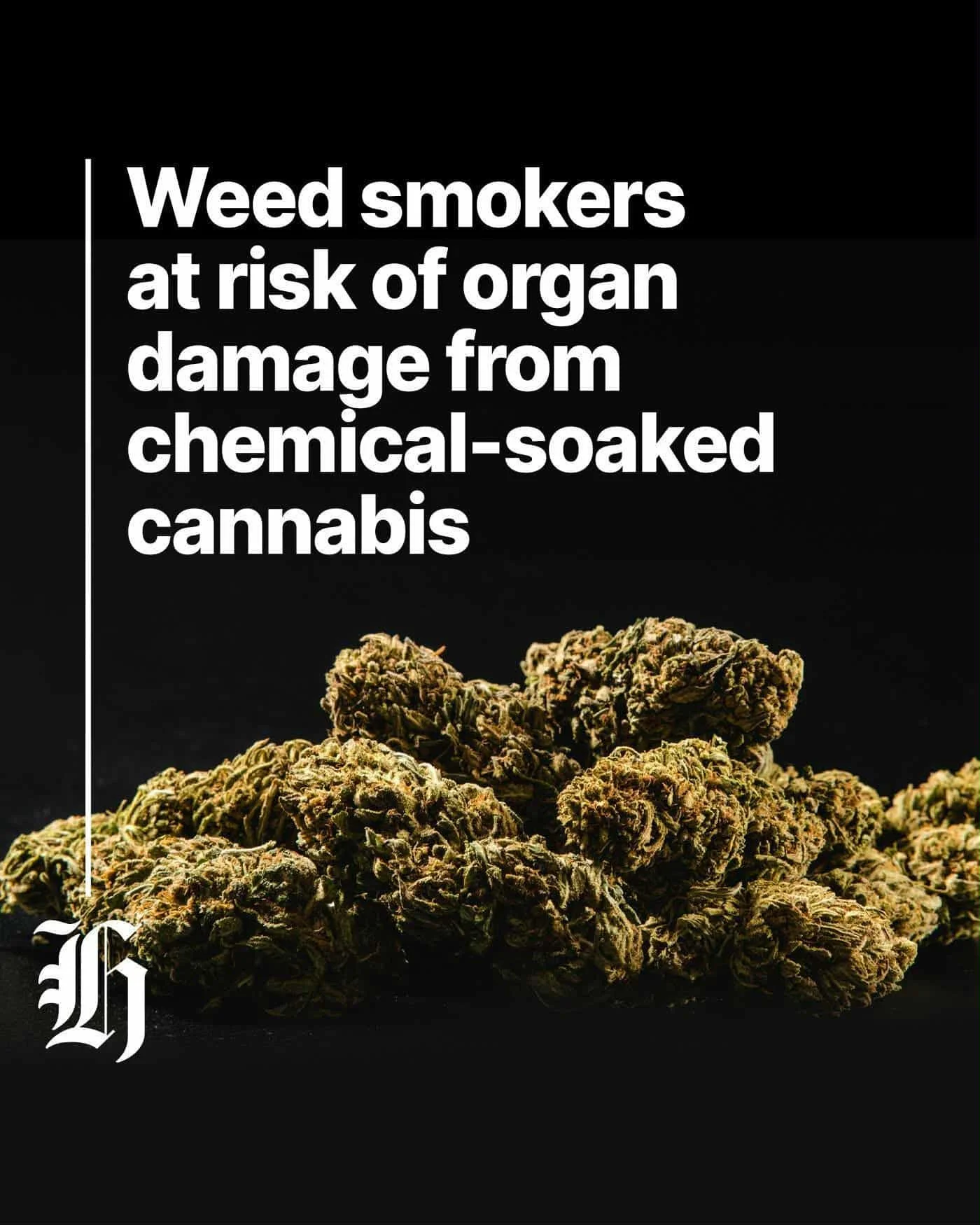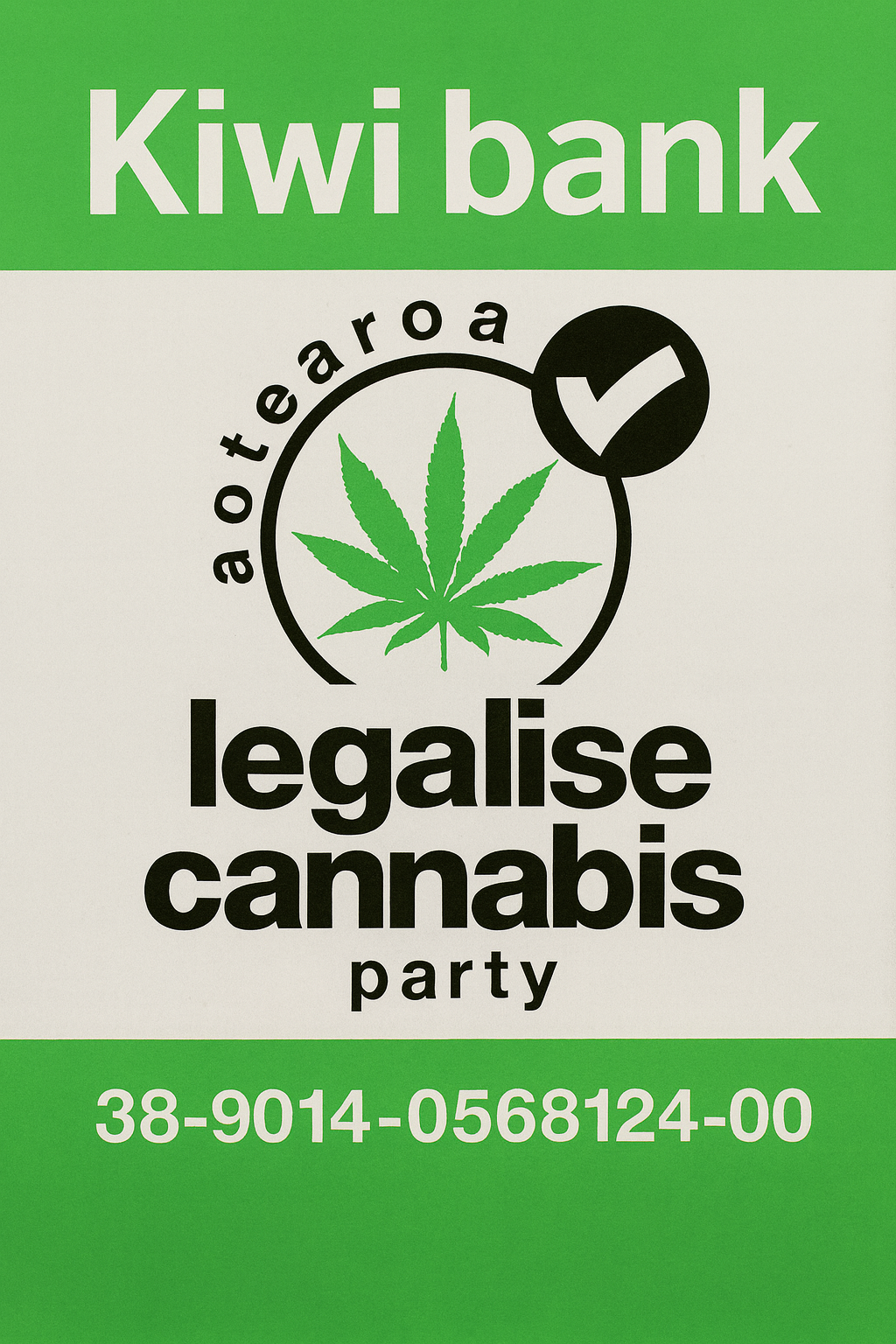GANDALF ‘‘green fairy” NEEDS YOUR HELP
15th December 2025 Whangarei Courthouse. Adjourned until further notice
16th October 2025 Whangarei Courthouse adjourned.
8th July 2025 Whangarei courthouse, adjourned.
Get Up, Stand Up · Bob Marley & The Wailers ·
### UPDATE ###
GANDALFS COURT APPEARANCE PREVIOUSLY SCHEDULED FOR TOMORROW
HAS BEEN ADJOURNED UNTIL 15TH DECEMBER.
APOLOGIES TO EVERYONE WHO HAS MADE ARRANGEMENTS FOR TOMORROW.
Thursday afternoon 16th October 2025 our Green Fairy Gandalf was again supposed to appear in the Whangarei District Courthouse regarding the police raid on his property earlier this year. Has been adjourned to the 15 December.
Your supportive presence would be greatly appreciated by Gandalf. Bring your banners, voices and other noise making equipment for a peaceful protest against his arrest and charges.
This October marks 50 years of Cannabis being held hostage under the Misuse of Drugs Act. It’s a nonsense that consecutive governments have maintained cannabis within the MODA when robust evidence has been produced showing it does not decrease harms to individuals and communities in fact harms have risen dramatically over the last 50 years and all caused by Prohibition not from the plant itself.
Gandalf and other folk have courageously maintained their gardens through the years of Prohibition in order to provide quality organic cannabis products to unwell folk like myself and many others.
Providing relief from pain and suffering such as Gandalf did, exposing himself and his family to the justice system is an incredible service to humanity. Now he stands to lose his freedom and possessions for the crimes of supporting sick and dying patients all over Aotearoa NZ.
It is time our beautiful plant was released from the dangers of Prohibition and returned to our gardens so we may heal ourselves.
In these current times of declining Public Healthcare and services we are obliged to find alternative ways of caring for our health and for me personally, and others, Gandalf and his organic oils and balms were a gamechanger for my quality of life.
Its my hope that one day in the near future he will again be able to grow and provide the products that gave me a quality of life not available with pharmaceutical products.
We can help him during these terrible times by donating to his give-a-little fund to help cover his costs.
https://givealittle.co.nz/cause/gandalf-needs-your-help
You can also help by signing the Parliamentary Petition to extend the existing Palliative Exemption over ALL patients AND their providers including Green Fairies, until our current Laws that uphold Cannabis Prohibition are changed to reflect our current scientific knowledge and commonsense.
https://petitions.parliament.nz/f6fefc9c-0228-4838-b595...
Last weekend Gandalf attended our Cannaposium in Auckland, so I will add photos below of our beloved Gandalf our Alchemist, our Wizard, our wonderful generous human being.
Kia kaha all you wonderful soldiers of change, the War on Drugs is still upon us but the end is nigh!
Nga mihi
Pearl Schomburg
13 May 2025
https://www.nzherald.co.nz/northern-advocate/news/northlands-gandalf-charged-with-cannabis-oil-supply-risks-14-year-jail-term/EUO6W4QSMBEBBJP7KPFEJKF23U/
Gandalf in Court Tuesday 13th May 2025
10 May 2025
This Tuesday 13th May at 11.45am our wonderful Green Fairy Gandalf will be appearing in the Whangarei District Courthouse
to hear further charges.
These charges under the outdated Misuse of Drugs Act 2975 are relating to the raid on his property on 25th February
this year and the confiscating of his illicit cannabis products destined for patients all over Aotearoa NZ.
We ask all those who wish to support Gandalf and can make it, to turn up in your Green outfits with your placards, banners and 'noisemakers'
(aka drums, whistles etc) to stand in solidarity with Gandalf on what will be a stressful day for him and us, his family.
We ask that you are respectful to the environment and the general public and to gather outside the Courthouse to raise awareness and create a media moment to further publicise the plight of Gandalf, our family and patients plus the many others in our community who suffer the same injustice.
Maki Herbert will again be the Rally Marshall so please approach Maki if you have any concerns or require information.
Gandalf really appreciates your support on these occasions and I'm hoping many of you will be able to gather beside him to uplift his spirits and show him the community support he has. 💚💚💚💚
Petition to Extend the cannabis palliative exemption to all patients and their providers
Please sign the petition to Extend the cannabis palliative exemption to all patients and their providers
https://petitions.parliament.nz/f6fefc9c-0228-4838-b595-08dd56ca1042
Warning! Warning! Red Alert!
Cheap Weed Laced with dangerous growth hormones!
Know your stuff. If unsure about the quality of your weed?
Go to the Drug Foundation to seek professional help.
Drug warning over cannabis grown with dangerous chemicals
By Neil Reid
Senior reporter NZ Herald·
6 Sep, 2025 12:00 PM
Those who ingest cannabis grown using particular chemicals are at risk of “adverse health effects” including serious organ damage.
Drug harm reduction service High Alert told the Herald the use of Plant Growth Regulators (PGRs) is on the increase among cannabis growers in New Zealand.
The chemicals can make cannabis buds rock-hard and heavy, with an excess of hairs on them.
Growers use the chemicals to control the growth of their crops; including the timing of maturity, and the weight, width and shape of stems, leaves and roots.
Common PGRs include paclobutrazol, daminozide and cholormequat chloride.
High Alert says an increasing amount of cannabis is being grown in New Zealand contaminated with dangerous PGR chemicals.
“In the case of cannabis, PGRs are used to fatten up buds to increase both weight and density, and as a result inflate the price to deceive unwitting consumers,” High Alert said.
“More worrying is the effect these chemicals can have on people who consume this type of cannabis” they said.
The chemicals soak into the porous leaves and stems of the plants and are impossible to remove.
Aotearoa Legalise Cannabis Party co-leader Maki Herbert told the Herald she was horrified some growers would add any of the trio of chemicals to their plants.
Cannabis was meant to be as natural a stimulant as possible and not tainted by such “poisoning”.
“I would be astounded if any of my associates were involved in [this] poisoning,” Herbert said.
“If that [the use of PGR] is the case, we have a problem.”
High Alert is New Zealand’s early warning system for dangerous drugs, operated by Drug Information and Alerts Aotearoa New Zealand (DIANZ) which is supported by a range of health professionals and both Government and Non-Government Organisations.
DIANZ is governed by the Police National Drug Intelligence Bureau.
High Alert said there were three main PGRs commonly used on cannabis.
The risks: Organ damage, carcinogens and eye irritation
All three were “potentially dangerous for human consumption” High Alert said through a spokesman.
Paclobutrazol was commonly used to make stems grow taller.
“When buds that contain paclobutrazol are smoked [the chemical] breaks down into nitrosamines — the most carcinogenic compound found in cigarettes" they warned
High Alert has issued a list of "tell-tale" signs for PRG cannabis, including a strong chemical flavour.
“Studies say paclobutrazol can negatively impact fertility, as well as cause liver damage.”
Daminozide is used to increase cannabis bud yields by slowing the growth of leaves and stems.
But its use also decreases the levels of THC - the psychoactive compound recreational users generally want in their cannabis.
“Daminozide is listed as a probable human carcinogen by the EPA [Environmental Protection Authority],” High Alert said.
Cannabis smokers face potentially serious health effects from PGR cannabis.
Health authorities around the world, including in New Zealand, do not allow its use on consumable plants due to potential health risks.
High Alert said the third most used PGR was cholormequat chloride. Large quantities of it have been linked to organ damage as well as skin and eye irritation in New Zealand.
“PGR cannabis can be very dangerous to people’s health, both in the long and short term, and is best avoided,” High Alert said.
Cannabis smokers face potentially serious health effects from PGR cannabis.
Health authorities around the world, including in New Zealand, do not allow its use on consumable plants due to potential health risks.
High Alert said the third most used PGR was cholormequat chloride. Large quantities of it have been linked to organ damage as well as skin and eye irritation in New Zealand.
“PGR cannabis can be very dangerous to people’s health, both in the long and short term, and is best avoided,” High Alert said.
Discover more
Older and wealthier: Who is using the most legal cannabis ...
Would legalising cannabis lead to a reduction in substance-related ...
The drug warning system said there were several “tell-tale signs” users could look for if they wanted to tell PGR cannabis apart from naturally grown cannabis.
They include rock-hard dense and heavy buds, an excess of brown or red hairs, low THC content, a “harsh chemical taste”, little smell when cannabis is broken and a “fast-acting chemical high that may cause lethargy (low energy and motivation) and headaches”.
Neil Reid is a Napier-based senior reporter who covers general news, features and sport. He joined the Herald in 2014 and has 33 years of newsroom experience.
The missing question from New Zealand’s cannabis debate:
what about personal freedom and individual rights?
Published: September 24, 2020 7.58am NZST
Much of the debate on New Zealand’s referendum on recreational cannabis legalisation has focused on health, the economy, criminal justice and the uncertainties about the impact on youth and adult use.
But one argument is oddly missing from the debate
— personal freedom, autonomy and individual rights.
This is striking, because the issue of personal liberties has traditionally been at the forefront of cannabis reform activism.
At the heart of all public health laws is the conflict between the powers of the state and the individual’s liberty, privacy and autonomy.
In the past two years, constitutional courts in several countries have ruled the prohibition of use, possession and private cultivation of cannabis interferes with an individual’s right to privacy. They’ve said protecting public health and security does not justify state punishment.
It may come as a surprise, but about half of the countries in Europe do not prohibit the use of drugs (as New Zealand does). Instead, they choose only to ban their possession.
The difference is more than academic. Prohibition of consumption may give police extraordinary powers, such as taking biological samples from people as evidence. Drug testing is intrusive and should only be done if there is a significant public interest to protect.
Unlock new possibilities.
Support us
Some countries go even further. They ban possession and use of drugs, but only in public spaces, on the understanding that drug laws exist to prevent public nuisance.
In Spain, the distinction between use in public and private led to the so-called “cannabis social clubs”. Users grow and share cannabis among club members in private settings.
The rights and the risks
The fundamental personal right to ingest a substance that has little impact on others has long been argued by cannabis activists such as NORML (National Organisation for the Reform of Marijuana Laws).
With this argument largely absent from current debate in New Zealand (as well as many other jurisdictions contemplating reform), debate focuses instead on the potential to create jobs and tax revenue (Colorado), reduce arrests and discrimination (Illinois), address public security and drug-related violence (Uruguay) and restrict youth access to cannabis and enhance public health (Canada).
The aim of New Zealand’s proposed Cannabis Legalisation and Control Bill is to apply market controls to reduce harms associated with cannabis and restrict access by young people. But, as we have argued before, the goal of reducing overall use over time will be hard to achieve via a commercial market.
The personal rights argument can struggle to win over people concerned about the health and social implications of legalisation, especially given their experience of other public health debates.
The alcohol industry, for example, pushed individual rights and consumer responsibility to undermine effective public health measures such as higher taxes and bans on advertising.
Personal choice vs public health
The assumption all adults can make responsible choices about using psychoactive drugs is also challenged. There are risks of dependency that could interfere with personal autonomy, and the psychological influence of marketing that targets vulnerable groups such as the young and poor.
There is a fine line between respecting people’s right to choose and facilitating the normalisation and commercialisation of something that could lead to poor public health.
The use of any psychoactive substance carries the potential to harm personal and family relationships and cause unsafe driving or workplace accidents. This reinforces the argument that some degree of regulation and state intervention will always be necessary.
The age-old question is how best to balance the powers of the state with individual rights to privacy and autonomy, while protecting public health and vulnerable groups.
The absence of recreational users’ voices
Society appears more receptive to the personal right to use medicinal cannabis.
Despite the (as yet) limited scientific evidence for the effectiveness of cannabis in medical treatment, greater legal availability of medicinal cannabis attracts good public support. This is largely based on respecting a person’s decisions about how to treat their illness.
The right to use cannabis recreationally requires decision makers to consider the benefits people get from its use, such as pleasure or relaxation. But this is often forgotten or avoided in drug reform debates.
Medicinal cannabis users have been actively involved in the cannabis law reform debate, with a representative on the Medicinal Cannabis Advisory Group. But recreational cannabis users seem to be largely absent from the public debate.
Including more voices from recreational cannabis users could provide new ways of thinking about balancing the powers of the state with individual rights.
Given the current uncertainties about the long-term health and social impacts of legalisation, the individual rights issue may actually be among the more convincing arguments for reform.
Q: What do you think? Do people have a right to use cannabis for recreational purposes, in public or private? Post your comment below and be part of The Conversation.
Truth in news is low - but journalism like ours still matters.
This year’s Trust in News report shows New Zealanders’ confidence in the media remains low. The decline may have slowed, but it hasn’t reversed – and the reasons are complex: disillusionment with institutions, younger audiences turning away, and widespread news fatigue. But when people disengage, democracy suffers. We’re less informed and equipped to participate in public life. At The Conversation, we believe journalism can – and should – do better. We publish evidence-based, expert analysis, free to read and republish. No paywall. No clickbait. No agenda. Our editors work with academics to offer clarity and depth on topics from climate and politics to health and education. It’s journalism that aims to shed light rather than generate more heat. This work takes time and care – and it relies on those who value public-interest media. If that’s you, please support us.
Whakamana Cannabis Museum
Whakamana Cannabis Museum of Aotearoa
The former Christchurch location, closed in April 2020. Established2013LocationAuckland, New Zealand Type Science, Social History Accreditation Museums Aotearoa Director
Abe Gray Website cannabis.kiwi.nz
Whakamana Cannabis Museum is New Zealand's first museum dedicated to the history of cannabis use and culture. It was first opened in October 2013 in Dunedin by Abe Gray,
former deputy leader of the Aotearoa Legalise Cannabis Party (ALCP), and Julian Crawford, former ALCP regional spokesperson.
In 2019 Whakamana relocated to Shand's Emporium in Christchurch when Abe Gray and Cookie Time founder Michael Mayell formed a partnership to grow the concept.
Whakamana sought to establish itself as a social club, an authority for cannabis education and events (i.e. lectures by figures in the cannabis industry), and an alcohol-free music venue and eatery producing hemp-based foods, and in late 2019, the museum attempted to raise funds via PledgeMe, a crowdfunding platform for New Zealand-based businesses, to help complete restoration of their new site. The campaign failed to raise its minimum target of $1 million NZD; therefore, investors were refunded, and the campaign was voided.[2]
Following revenue issues and a failure to find suitable investors, the Christchurch location was closed. In 2020, Gray attempted to establish a new site in central Wellington, the capital city of New Zealand. As a political hub which houses New Zealand's parliamentary buildings, Gray considered the location to be more effective in the lead-up to the 2020 New Zealand cannabis referendum. This was ultimately put on hold due to the COVID-19 pandemic.
In 2023 a fundraiser was held for reopening the Museum in the iconic Hopetoun Alpha heritage building in Central Auckland, with a view to reopening the museum permanently at that location. In 2024 the Museum started weekly social club meet ups at an Auckland waterfront bar and announced that the Museum would re-open permanently in Hopetoun Alpha in mid-2024. On August 9th 2024 the Museum was officially re-opened by Auckland Central Member of Parliament and Green Party Co-Leader Chloe Swarbrick in a ribbon cutting ceremony
Whakamana was designed to be a national information centre on aspects of the science, history, and legislation surrounding cannabis, with an aim to educate the public and destigmatise adult use of cannabis. It operates within New Zealand's laws and does not sell cannabis. However, Whakamana previously stated they would set up a dispensary provided the law allows it to. A prescribing doctor and dispensary is included in the new Auckland location.
Early formation
The original museum was created in the Legalise Cannabis House, pictured in late 2016.
Originally located in Dunedin, the museum was first operated in the Legalise Cannabis House on David Street. The museum served as an information service to educate the public about all aspects of cannabis, including books that are unavailable at other libraries. In addition to acting as a museum and serving as a center for drug law reform advocacy, the museum promoted open-source computer software. It also featured meeting rooms and a digital multimedia studio.
The museum was opened in 2013 by Abe Gray, known for his cannabis activism as the former deputy leader of the Aotearoa Legalise Cannabis Party and leader of cannabis lobby group Otago NORML, and Julian Crawford, the former ALCP regional spokesperson. It was reportedly a venture between the ALCP and Otago NORML. Dunedin has had a long history of advocacy for marijuana law reform largely through the latter organization.
Gray, who is originally from the United States of America, has a Masters in Botany. He has spoken out about the discrimination of cannabis users and has been described as a lobbyist and an activist for cannabis. Gray publicly left his role as the president of the ALCP to support The Opportunities Party (TOP) in 2017, believing the organization to be the most viable political platform to help effect cannabis law change at the time. Gray hoped that support from former ALCP voters would help TOP to enter parliament without requiring an electorate seat. Gareth Morgan, then the party leader, praised Gray for supporting the party's Real Deal Cannabis reform.
In 2018 the museum left its original home in South Dunedin to occupy a new central city premises in the Eldon Chambers Building in Princes Street. During this time, comedian Guy Williams documented the museum in a segment for the comedy programme, Jono and Ben.[19] Gray stated that the presence of the museum in Dunedin would put it in the ideal position to become a centre for cannabis tourism should the drug ever be legalised in New Zealand, referencing the city's history of support for law change relating to drug use and possession. However, the museum moved again in 2019, this time to Christchurch; Gray had hoped to keep a branch of the museum running in Dunedin but found the idea unsustainable due to a reliance on volunteers.
2019 Christchurch project
Mayell (left) and Gray speaking at the University of Canterbury, October 2019.
In mid-2019 the museum left Dunedin and relocated to Christchurch. Gray teamed with Michael Mayell,
a social entrepreneur and environmentalist known for founding the snack company Cookie Time.
Mayell has an interest in the emerging hemp economy and argues that it could allow New Zealand to reduce its reliance
on dairy farming. Shand's Emporium being restored next to Trinity Church in 2018.
The former Christchurch location, closed in April 2020.
Established2013LocationAuckland, New Zealand, Social History Accreditation Museums Aotearoa
Directo Abe Gray Website cannabis.kiwi.nz
The museum was housed in Shand's Emporium building on Manchester Street in Christchurch, having been relocated
from its original site in Hereford Street and adjoined to the neighboring Trinity Church, with plans to restore the church
as the central space for the museum. Both buildings are among the oldest in Christchurch and had required restoration
following the 2011 Christchurch Earthquake.
The organization operated a Cannabis Social Club, which was New Zealand's only functioning club in 2019.
Whakamana is an education centre to provide public access to science, literature, and experiences to promote cannabis education.
The museum has hosted past events featuring notable individuals and experts on cannabis including activists and
green fairy Rose Renton.
Crowdfunding campaign
In a press release, Gray and Mayell announced plans to raise $1 million NZD via the crowdfunding platform PledgeMe to complete the Trinity Church restoration and expand their services and resources, offering one share per dollar at a minimum of fifty shares. The campaign went live in late 2019.
By the end of the fundraising period the campaign had raised $214,616 (NZD) from 299 people. However, the campaign had failed to raise its minimum target of $1 million NZD, therefore the total amount was returned to investors in accordance with the terms of PledgeMe. Gray initially attributed the failure of the campaign to a lack of awareness about the project among the local cannabis community but argued in a later interview that prevailing cannabis stigma had played a role.
Following the failure of the campaign, Gray and Mayell said they were approaching investors and seeking alternative means of funding, and would seek overseas investors if suitable New Zealand investors could not be found.
In May 2020, Mayell revealed that revenue issues had forced the museum to close its Christchurch location. Whakamana planned to move to Wellington in the form of a new project, but ultimately went into storage due to the COVID-19 pandemic.
2020 Wellington project
In January 2020, Whakamana Museum posted on their Facebook page that they were seeking volunteers to set up a temporary pop-up museum in Wellington, intending to keep it running until the 2020 New Zealand cannabis referendum was resolved. Gray moved to Wellington to facilitate the project. Whakamana had planned to have a location set up in time for April, however this was impacted by the COVID-19 pandemic.
After deciding it was untenable to continuing leasing the Manchester Street premises, Whakamana announced they would close their Christchurch premises permanently to focus resources on the Wellington project, but ultimately went into storage due to the COVID-19 pandemic.
2023-24 Auckland Revival
In 2023 a fundraiser was held for reopening the Museum in the iconic Hopetoun Alpha heritage building in Central Auckland, with a view to reopening the museum permanently at that location.
In 2024 the Museum started weekly social club meet ups at an Auckland waterfront bar and announced that the Museum would re-open permanently in Hopetoun Alpha in mid-2024.
On August 9th, 2024, the Museum was officially re-opened by Auckland Central Member of Parliament and Green Party Co-Leader Chloe Swarbrick in a ribbon cutting ceremony.
AOTEAROA LEGALISE CANNABIS PARTY PRESS RELEASE 11 TH October 2023
“Promise for Cannabis Law reform could turn the political tide for Labour or National”.
The Aotearoa Legalise Cannabis Party calls upon National, Labour and any smaller party to attract the 250,000 odd young kiwi voters between 18 and 24 who did not vote in the last election, by promising to legalise cannabis for those over 18.
Labour did not take the opportunity to do so over the last 6 years, so there is a chance for National to garner these votes. And if any were to do so, we would encourage our voters to vote accordingly.
Some 1.4 million voted YES in the 2020 Cannabis referendum, they deserve representation.
This could result in one or two extra seats either way if National or Labour had the GUTS to go with cannabis law reform and ‘set the cannabis community free’ from the oppression of cannabis. Prohibition. If only they had the guts making them ‘the heroes of the revolution’.
Ending expensive, failed prohibition laws will save millions per annum on police, courts, prisons, and probation, at the same time the government will be able to make over a billion dollars in new taxes per annum from the medicinal, R!8 Recreational and the sustainable climate saving hemp industries.
Ends
Who out of Hipkins or Luxon makes the biggest Chris dingus?
Both said no to decriminalisation –
but this week’s Marijuana Media
show has two other Chris’ for cannabis:
Fowlie from NORML discussing Coker from the Cannabis Party
(pictured), with Jonny and Corey from 95bFM Drive.
https://95bfm.com/bcast/marijuana-media-thanks-to-the-hemp-store-september-21-2023
Both Chris’ say they won’t decriminalise cannabis
On the TVNZ leaders debate this week, in a battle of the bland the two Chris’ who lead Labour and National both said they would not decriminalise cannabis in response to “quick fire” questions by host Jessica Mutch-Mackay.
Stuff ranked it Number One in a list of
“A few surprising things from the first leaders' debate”.
Neither Chris thinks weed should be decriminalised
Both Hipkins and Luxon gave a quick “no” when asked if cannabis should be decriminalised.
TDB Recommends NewzEngine.com
Politically, it’s somewhat surprising that both major parties have come to a consensus on an issue which the country is pretty much 50/50 on.
At the 2020 election, 48.4% of people voted in support of legalising cannabis. The referendum failed, with a very slim majority of 50.7% opposing the suggestion.
Decriminalisation is generally seen as a step below legalisation. Legalised cannabis would allow its sale and commercialisation, whereas decriminalisation would just remove the ability for police to charge someone with possession of cannabis.
After the debate, Hipkins told reporters he voted in favour of legalisation in 2020.
Newsroom’s political editor Jo Moir also listed it first among their litany of same as the other guy responses (“First leaders’ debate light on new insights”).
Their acquiescence to the status quo was also noted by Newshub (“Where Hipkins, Luxon stand on popular issues”) and the NZ Herald (“Who won the TVNZ leaders’ debate as Chris Hipkins, Christopher Luxon clash”).
After the debate, Hipkins pointed out he voted Yes in the referendum. Unlike Adern and the Nats, he actually encouraged people to vote Yes. So that makes Hipkins the lesser of the Chris Dinguses.
But WTF was Hipkins doing, making up a “do nothing” policy? It means more gangs intimidating towns like Coromandel last weekend. It means more prohibition violence, discriminatory enforcement and lagging embarrassingly behind other countries.
– thanks to The Hempstore!

Northland candidate Jeffery Lyes and
Te Taitokerau candidate Maki Herbert
debate at upbeat public meeting
11:51 am on 4 October 2023
Share this
Audience members were encouraged to hold up signs rather than heckling. Photo: RNZ / Peter de Graaf
It was the last candidates meeting of the election campaign in Northland - and it was also the best.
More than 80 people gathered at Ōtiria Marae, near Moerewa - west of Kawakawa, on Tuesday night to hear from 12 would-be MPs contesting the Northland and Te Tai Tokerau electorates.
Three weeks ago another candidates meeting in Kerikeri made headlines after Labour MP Willow-Jean Prime was shouted down and jeered any time she used a Māori word, and even the organiser was heckled for not being Kiwi.
The Ngāti Hine-hosted event at Ōtiria, by contrast, was a love-fest.
Candidates piled praise on each other, audience members were encouraged to hold up humorous signs instead of calling out, and anyone who wanted to claim one of the night's spot prizes had to sing a song about aroha.
A dozen candidates standing in the Northland and Te Tai Tokerau electorates took part in a lively meeting at Ōtiria Marae, near Moerewa. Photo: RNZ / Peter de Graaf
Many weighty topics were debated - tax, the cost of living, Te Tiriti, and youth mental health to name a few - but there were also plenty of laughs.
New Zealand First's Shane Jones even found humour in his ejection from Parliament in 2020.
"I'm the fulla you sacked. Despite spreading money around Ngāti Hine you rejected me. It was a debilitating experience to be made unemployed three years ago, but hey, Freddy's back," he said, a reference to the Nightmare on Elm Street movies.
Taxes proved a popular talking point with National promising tax relief to offset the soaring cost of living, New Zealand Loyal pledging to replace income tax with a 1 percent transaction tax, and the Greens saying if Labour didn't have the guts to bring in a wealth tax, they would.
Jeffrey Lye of the Aotearoa Legalise Cannabis Party. Photo: RNZ / Peter de Graaf
From left, Maki Herbert (Aotearoa Legalise Cannabis Party), Matt King (Democracy NZ) and Mariameno Kapa-Kingi (Te Pāti Māori) listen to the other candidates. Photo: RNZ / Peter de Graaf
Green candidate Hūhana Lyndon said the party would make sure the "mega-rich" paid their fair share.
"Three hundred and eleven families, that are worth $270 million each as a household, are not paying the same amount of tax as your average nurse, or teacher," she said.
Labour's Kelvin Davis warned that ACT planned to rewrite the principles of the Treaty of Waitangi, and defended his party's record for Māori.
"We have been criticised for not doing enough for Māori. We think we've done heaps, and there are others who say we've done too much."
Davis also pushed back against claims the country is increasingly divided.
"People have said the country is divided like never before and I say they're probably right - but it's not a division on race, it's an ignorance division. There are some people who are so ignorant about te ao Māori [the Māori world] that they are threatened and frightened by anything to do with it."
Before the meeting began the audience was invited to submit questions, which were then drawn at random.
The chosen topics included the parties' positions on Te Tiriti.
All candidates present backed the Treaty with Democracy NZ's Matt King and National's Grant McCallum saying they wanted to see Ngāpuhi settle its claims soon, while Jones doled out some tough love.
He said it was an indictment on all descendants of Rāhiri, Ngāpuhi's founding ancestor, that the tribe's Treaty settlement process had drifted for so long.
"No more excuses. Nor more rationalisations as to why things haven't happened. In the event that I get into Cabinet again, I'm doing it. Do it with me, or I'll do it to you," he said.
Mike Finlayson of the Northland Party addresses the crowd. Photo: RNZ / Peter de Graaf
Candidates Maki Herbert, left, (Aotearoa Legalise Cannabis Party) and Willow-Jean Prime (Labour) greet each other at Ōtiria Marae. Photo: RNZ / Peter de Graaf
Housing was another hot topic. Maki Herbert, of the Aotearoa Legalise Cannabis Party, touted hemp as a low-cost, fast-growing building material, while Prime and Te Pāti Māori's Mariameno Kapa-Kingi talked up their house-building records in Northland as MP and iwi leader, respectively.
In contrast to the Kerikeri debate, there were no attempts to shout down candidates.
The Greens' Reina Tuai Penney said she had not been able to bring her children to any other candidate meetings.
"They don't need to hear that the Treaty's bad, they don't need to hear that Māori are the problem, because we're not. The system is the problem," she said.
The unexpected star of the night was Jeffrey Lye of the Aotearoa Legalise Cannabis Party, who, no matter what the question was, managed to make cannabis the answer.
Despite a serious message about harm caused by New Zealand's drug laws,
"We believe the local law creates the problem. You get five bros together drinking alcohol, they'll start a fight. You get five bros together smoking cannabis, they'll start a band and play music," he said.
Northland Party founder Mike Finlayson and New Zealand Loyal's Michael Feyen also took part.
Finlayson said his aim was to put the environment "first and foremost in everyone's faces" while Feyen said his party's goal was to abolish political parties.
"We are absolutely different to any party here. We do not want parties any more … We are a golden wave of discontent in this country, Māori and Pākehā," he said.
ACT did not attend.
Prime said the audience at Ōtiria, unlike the now infamous Kerikeri meeting, allowed everyone to be heard.
"My main disappointment with the debate in Kerikeri is that the supporters of the other candidates simply shouted me down so I could hardly answer a question. Here all of us were afforded the respect to just be able to get our points across."
McCallum agreed, saying it was easily the best meeting he had attended.
"Everyone got to have their say, and agree to disagree and make their points, without the angst and anger that we've struck at other meetings, which were just yell-fests and non-constructive," he said.
It's not clear which candidate came out on top after the two-hour debate, but the winners on the night were decency, debate and democracy.
Election day is 14 October. Early voting is underway with polling booths open daily around the motu.

Media Query - Te Tai Tonga candidate questions
To: Shannon Thomson <shannon.thomson@alliedpress.co.nz>
Kia Ora Shannon
I really appreciate you taking the time to include me in this I appreciate it.
Name: Rebecca Rae Robin
Party: Aotearoa Legalize Cannabis Party
Electorate Standing: Te Tai Tonga
Where do you live? Otautahi Christchurch
Why are you standing for election? I have been working in Cannabis Law reform for over 12 years The Referendum had 1.4million people vote YES to the Legalisation of Cannabis that’s a huge part of the country to ignore! I am a singer and creative by trade and I can see that this still needs addressing it is an honour to be in this position.
What are the three main issues to you believe are faced by people living in Central Otago / Upper Clutha who are part of your electorate? - For our Party knowing people can be criminalised by in just laws is a first - the cost of living is astronomical, and the suicide rate is at a rate so high its noticed worldwide legalisation could bring in massive money to help solve these issues
Geographically your electorate is quite large, with a diverse range of communities, each with unique challenges. How will you effectively represent such a large area? I have come in late to the race now I can understand that a good amount of resources to travel would be helpful it also saddens me my ancestors fought hard for Titiri O Waitangi and the fact the Maori seats are over such broad areas show that it can be unfair however all of us candidates have our Mana and we want to represent what’s best for Maori - and legalising cannabis would have an overflow affect that would affect everyone in the country in a beneficial way https://linktr.ee/rubykushmusic here is my link tree with my social media and how to get in contact with me. Nga mihi.





